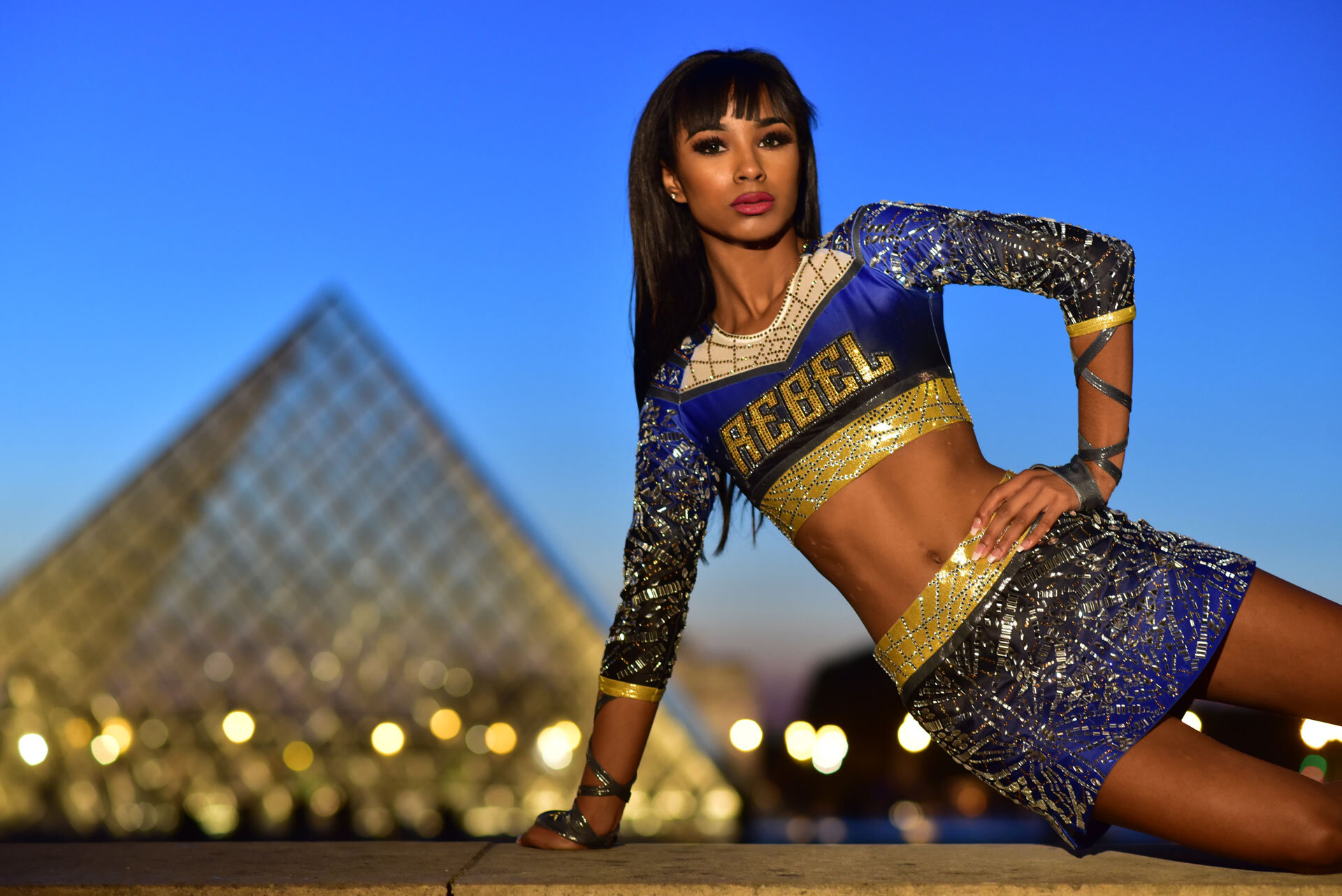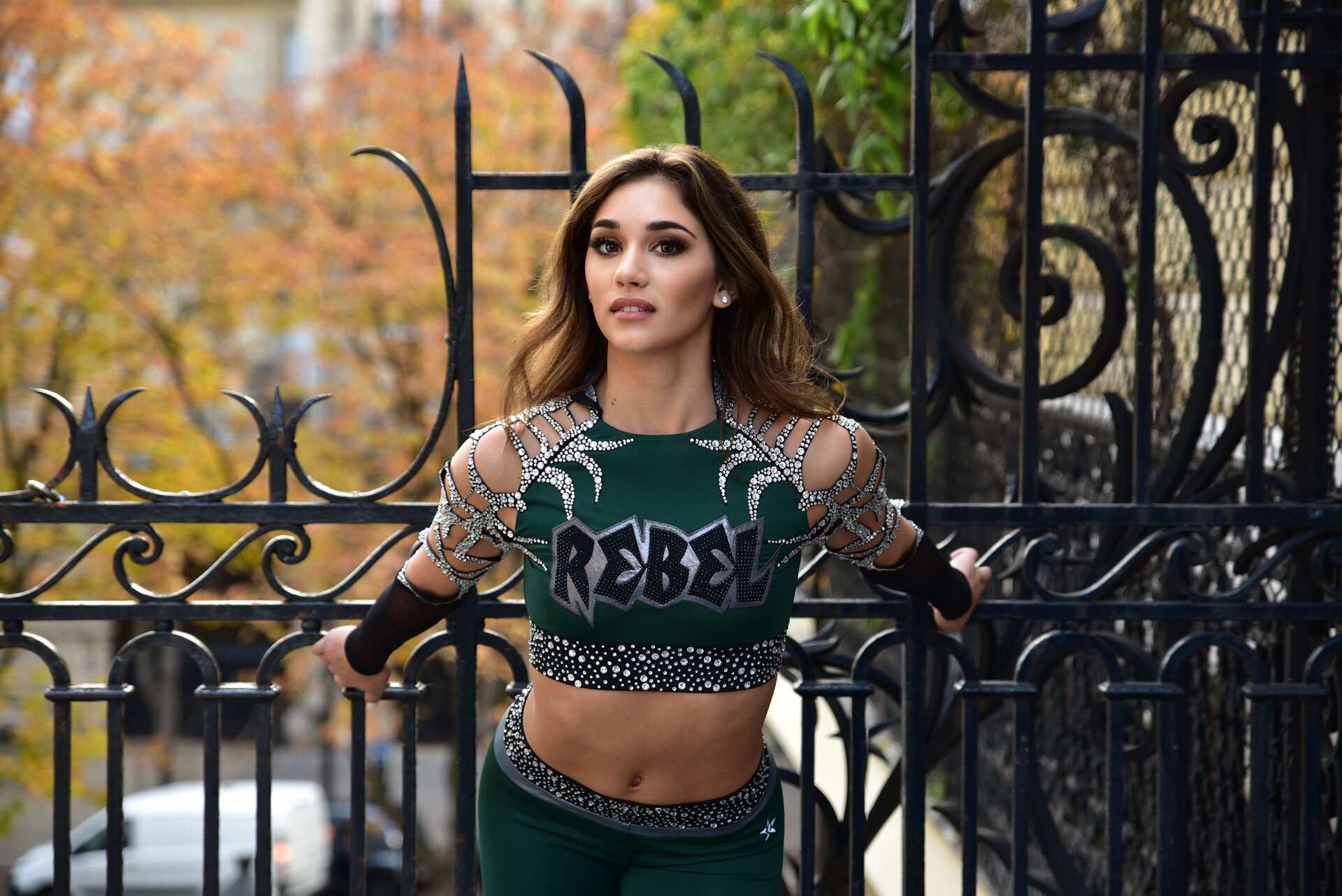5 pivotal moments that drove Rebel Athletic’s success
As detailed in ‘A Beautiful Constraint: How To Transform Your Limitations Into Advantages’, successful challenger brands have to figure out how to make constraints beautiful, i.e. they develop a capacity to find opportunities for growth in the many and varied challenges that inevitably come their way. It’s this mindset that allows them to take a bite out of the better resourced Big Fish. There is no better example of this than Rebel Athletic, who through a combination of creativity and tenacity have found a way to take share from one of the most aggressive monopolists on the planet. Indeed, so powerful have Varsity Brands become, that the Bain Capital-owned firm is now facing an anti-trust lawsuit in the US. Mark Barden talks to Founder and President Karen Noseff Aldridge, as she shares the pivotal moments that to led Rebel winning the lions’ share of the US competitive cheer apparel market in just eight years.
1. Turning lemons into lemonade
Rebel’s founder Karen Noseff Aldridge.
The climax of the cheer season is the ‘Worlds’, held in Orlando, Florida, in April each year. This is where the planet’s best teams and athletes compete across multiple days in various divisions for trophies, fame and accolades. It is also where teams debut uniforms that have been months in the making. For Rebel, as an upstart in the industry, outfitting teams was a key way to gain publicity and new customers. Indeed, Rebel had gate-crashed the cheer-world’s consciousness in 2013 with a radical uniform for Cheer Athletics’ Panthers, one that caused instant polarization and established the one-year-old company as the industry’s challenger brand. So, when Rebel managed to persuade another notable cheer team to wear its uniforms in 2014, it was another marketing and relationship coup. But at the eleventh hour, Rebel received a phone call from the client saying that they would no longer be wearing the uniform and it would instead be provided by a competitor. This was an early indication of the intimidation tactics that would frequently be used by the category Big Fish.
“That was our first lemons to lemonade moment — it was a turning point for us”
To make matters worse, the Rebel team sat in the audience at the event in disbelief as the team entered the arena wearing a poor imitation of the uniform Rebel had designed. ‘These kids came out on stage wearing this bastardised version of our uniform and we had to sit there and suck it up,’ she said. Instead of becoming victims of the situation, Rebel saw an opportunity to make use of the rejected design. They gave each of their thirteen sales reps a uniform to use as a promotional item and offered the design at a reduced price to teams all around the country. Rebel made over $1m in sales from that one style that same year. ‘That was our first lemons to lemonade moment,’ Aldridge said, ‘It was a turning point for us. It instilled in us the belief that we can take any bad situation, and turn it into something incredible.’
2. Turning a nightmare into a dream
In 2015, Rebel Athletic had a partnership with Jam Brands, a company that at the time, was the largest independent, non-Varsity controlled, event producer. Rebel would licence event space at Jam’s competitive events and sell clothing, talk with customers and build crucial relationships inside arenas. But later that year, and right in the middle of Rebel’s contract, Varsity purchased Jam Brands. The move blindsided Rebel. Suddenly, it would no longer have access to Jam’s critical events. Inspired by the Kenneth Cole Productions origins story, Aldridge and her team decided that if they couldn’t get inside the venues anymore, they would pitch up outside of them. The Dream Bus concept began with a Rebel branded trailer parked outside competitor’s venues. A 1940’s dressing room inspired interior had a glamorous makeup mirror and spacious seating area to draw athletes in.
“It forced us to get outside our comfort zone and figure out a plan B very quickly”
Initially, the trailer just sold a selection of Rebel’s Dream bags, but the concept has grown into a ‘lucrative beast’, with two vehicles which are re-wrapped and refreshed each year offering a wide range of cheer and athleisurewear products. Now, the Dream Bus has spawned Dream Boutiques, which regularly attract thousands of athletes and their parents over a weekend’s event, with many queuing up overnight to be the first in the door and obtain limited edition Rebel items. These events, and the Dream Bus concept, were the driving force behind the multi-million dollar Rebel retail division that now sells to fans around the globe.“That [constraint] was one of the best things that could have happened to us because it forced us to get outside our comfort zone and figure out a plan B very quickly,’ Aldridge said. ‘We may not even have gone into retail without that stimulus, which is now a big chunk of our overall revenue.’
3. An overcommitment to their Lookbook
A photo from Rebel’s lookbook shot in Paris.
Rebel overcommit each year to producing their couture-inspired Lookbook. The team has flown to Paris, London, Venice, Barcelona, and despite COVID-19, still plan to travel abroad this year. Despite this apparent extravagance, Rebel set a fixed budget and bootstrap each trip, with their 40-strong crew staying in Airbnb houses and dining at home on pasta, pizza and popcorn. The Lookbook is created entirely in-house, with Rebel taking its videographer to record the entire event.
“You’re capturing a year’s worth of really cool and different content in a week”
In addition, the social media team conducts daily ‘drops’ of new items inspired by the location, with the entire stock usually selling out in minutes. 'You're capturing a year's worth of really cool and different content in a week, while all the athletes on the trip are doing TikToks and posting to Instagram - and we’re selling tens of thousands of dollars of clothing online each day', Aldridge said. 'It's worth every penny.' For Rebel, creating an incredible Lookbook has been a way to set themselves apart from competitors. 'No one else puts this amount of effort in to produce a Lookbook,' she said. 'It's put us on a different level to anyone else in the industry in terms of how people perceive us.'
4. Calling out Goliath’s bad behaviour
In 2016, Rebel released 'Rebels Take the Mat', a bold and provocative video that took a stand against Varsity, and its unfair practices and behaviours. Varsity Spirit is estimated to control 80% of the cheer uniform market - with the vast majority in the school market. It's a level of near-monopoly that sees Varsity control the event calendar and who goes to Worlds, provide the judge’s compensation and often set the pricing of competitions. 'There's long been an ugly feeling that unless a team is in a particular brand's uniform, at a particular event, they can’t win’ Aldridge said, 'and so we just faced that ugliness head-on.' The video included the caption 'When rebels come to your house, they wear what they want' and used the hashtag #RebelAgainstTheMachine' referring to their monolithic competitor.
“I watched it and thought, wow, this is gonna make us some enemies”
The film positioned Rebel as the underdog of the cheer industry and put a stake in the ground that they would not stay silent while the sport and its teams were being discreetly intimidated. 'I watched it and thought, wow, this is gonna make us some enemies, but it worked because we had another record year of sales,' she said. 'It's that type of button-pushing advertising that has gotten us where we are today.’
5. Netflix and new opportunities
Netflix’s documentary ‘Cheer’ shattered the stereotype of what a cheerleader is, what they do and how they’re supposed to look. It took cheerleading beyond America and to a global audience like never before. It’s also been huge for Rebel’s growth this year. With the Navarro team wearing Rebel’s uniforms (Navarro were one of Rebel’s early customers and have been loyal fans for over seven years), there was an opportunity for the brand to play a role in the series and benefit from the exposure.
“Nobody at the time thought it was going to be this big; it just blew up overnight.”
The entire company at Rebel’s Brand Summit in 2020.
‘I didn’t think much of it,’ Noseff Aldridge admits, ‘I was thinking, okay, it’s a cheer show on Netflix. Of course, I said, yeah, they can come [film] whatever. Nobody at the time thought it was going to be this big; it just blew up overnight.’ However, the Netflix and Rebel teams bonded around a shared passion for the athletes, which allowed Rebel to get a jump on the competition and sign the stars of the show to the brand months before the show launched.
Soon after the show aired, Rebel also agreed to a deal with Navarro to sell its merchandise exclusively. Rebel got a little lucky with the Netflix series. But the lesson is perhaps saying yes to opportunities more often than not, and to finding business and creative soul-mates. Both the Netflix team and the Navarro squad thought of themselves as underdogs, a perfect match for Rebel’s Feisty Underdog brand spirit. Despite COVID-19 and the anticipated downturn, Rebel has exceeded every monthly sales target this year, with Aldridge crediting the awareness the series provided them as significant to that success. ‘We’ve passed 50% of our annual target already, and are hitting our goals despite the craziness right now with COVID. It’s quite amazing, and I’m very thankful for that show.’




